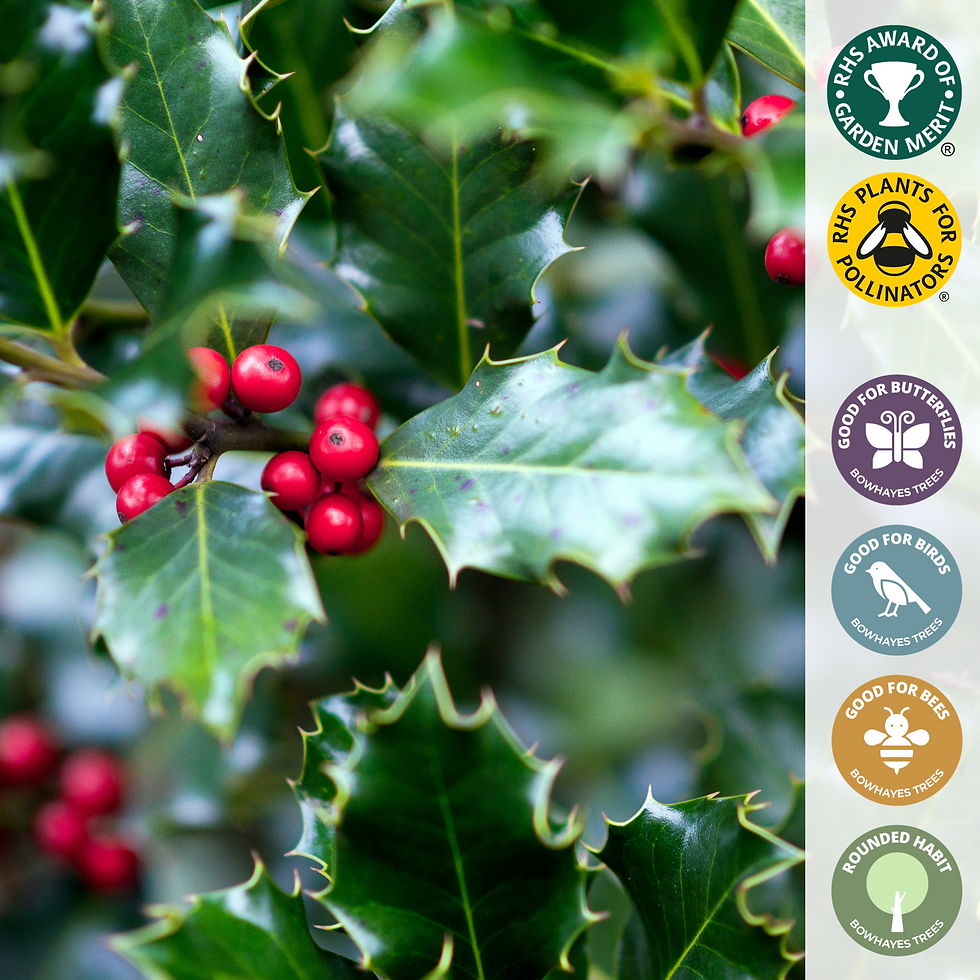We have carefully selected a hedge pack to provide a good level of privacy screening. Predominately green beech with a mixture of up to 5 other species adds seasonal interest and attracts an abundance of wildlife into your outside space.
The plants are best planted at 7 per metre to create the ultimate cover all year round. Plants are 40-60cm bare roots. See pack sizes below.
Description
This privacy hedge pack is predominately beech, and although beech is deciduous, when maintained as a hedge, the plant holds its leaves until it's ready for new growth come spring. These hedge packs contain a combination of up to 5 other species to add seasonal interest and attract an abundance of wildlife into your outside space.
Beech or Hornbeam?
If you have clay soils, you would be best with hornbeam as your base, whilst beech is better for chalky and acidic soils.
Whilst we'll try to include as many of the following species as possible, we reserve the right to alter the mix accordingly based on availability.
Key Species
Beech - One of the UK's most popular garden hedging plants. Holds its leaves through winter. Thrives well in well-drained chalky, and acid soils
Hawthorn - Clusters of fragrant white flowers are followed by glossy red fruit.
Other Species
Hazel - Bears yellow catkins in February, making it one of the earliest sources of pollen for bees and producing edible hazelnuts in Autumn.
Blackthorn - Creamy-white flowers appear in spring, followed by the sloe fruit in autumn. The fruit is popularly used in the making of Sloe Gin.
Crab Apple - The flowers provide nectar for bees and birds, and the fruits are eaten by many species of birds and mammals.
Spindle - Pretty pink flowers providing nectar for bees and birds and the habitat supporting a wide range of insects.
Wild Privet - Ornamental semi-evergreen shrub with white flowers and berries loved by birds.
Dog Rose - Pretty pink flowers provide a source of nectar for insects. The fruits are a food source for various species of birds, such as blackbirds, redwings and waxwings.
Elderberry - Very attractive to wildlife; the flowers provide nectar for bees and insects, and the fruits are of eaten by birds and small mammals.
Size
Growth Rate: Average 20-40cm a year
Final height: 4-5 m
Planting
Plants provided are 40-60cm bare root saplings - available for planting between November and April.
We recommend planting 7 plants per metre in a double staggered row for a dense screen giving the ultimate cover all year round. To give you an indication of the number of plants required for a double-row hedge:
7m Hedge: 50 plants
14m Hedge: 100 plants
35m Hedge: 250 plants
70m Hedge: 500 plants
Alternatively, use our hedge calculator here.
Plant Protection
If there are lots of rabbits in the area, it might be worth considering protecting your plants with spiral guards. See here for more plant protection option.
1-Year Plant Guarantee | Replacement or refund if your plants fail within a year
30+ Years Experience
100,000 Orders Shipped
Articles similaires

WE'LL DELIVER TO YOU
We work hard to pack our plants carefully so they arrive safely with you. If you’re not happy within 30 days, let us know, and we will sort it out.
FAMILY BUSINESS
We’re a friendly family business in East Devon, and we love to help people find what they need. It’s often about finding the right solution to a problem and providing something beautiful.
GROWN & SOURCED
We grow a lot of stock here in Devon, and what we don't have, we work with brilliant and knowledgeable partners to provide you with a fantastic range.

About us
We love trees for their positive impact on the environment and their vital role in supporting wildlife. Trees improve air quality, store carbon, prevent flooding, and make beautiful natural screens. They also make excellent eco-friendly gifts.
At Bowhayes Trees, we’ve been growing trees for over 30 years and manage a cider orchard producing apples for local cider makers. Visit us in Devon to explore our nursery, or browse our curated collections online. Our expert team is always available to offer personalised advice on finding the perfect plant for your needs.
Proud suppliers to...






















